Salar Abdoh reflects on returning to Iran, burdened by injustice and a desire to reconnect with a culture that has normalized disinformation.
And why had I come back? Because I had never imagined I wouldn’t. I wanted to reclaim that land and also find out what kind of a people it takes to make disinformation and denunciation a national pastime.
In the Spring of 1990, I paid over a thousand dollars in extra charges at San Francisco airport to move eleven large boxes of books and two suitcases to Tehran. In the back of my mind was an old photo of my father — one of many — that the hideous fly-by-night papers of the revolution had printed about him eleven years earlier, this time accusing him of the murder of Takhti, Iran’s legendary wrestler, an Olympic champion and a man staunchly opposed to the effete regime of the Shah. When Takhti committed suicide in 1968, all of Iran went into mourning. He was bigger than life, and in death he became a myth. Therefore, to be accused of having had a hand in his death was not unlike being accused of killing — take your pick: Martin Luther King, Malcolm X, Jesus Christ.
The grief from this lie would soon kill my old man, who had dedicated his entire life to professional sports and, expressly, to sportspeople like Takhti, who had in fact been his friend.
Which is to say the chip on my shoulder going back home had the weight of a man accused. Iran was just coming out of eight years of fierce war with Iraq. During that first week back home, my sister, who had remained in Tehran, took me to a restaurant. The napkins were cutout pieces of paper and when I asked for mustard the waiter simply laughed. I had come back to a country that was still reeling.
And why had I come back? Because I had never imagined I wouldn’t. I wanted to reclaim that land and also find out what kind of a people it takes to make disinformation and denunciation a national pastime.
Before a month had passed, I found myself — fresh out of Berkeley, California and sporting a Fidel Castro beard — sitting inside the four walls of a “business” firm, day after day, for hours on end rolling a string of prayer beads in my hand and saying little to the other young men, who sat there doing the same thing. I was mirroring them because I didn’t know what else to do. These brothers all were veterans of the recent war. Believers. They did not fail their prayers. And every day at 1 pm, the Iranian national meat stew of office life, Abgoosht, was served.
The firm was run by various former commanders of the Revolutionary Guards, now switching masks. It was the post-war reconstruction period and money was to be made. Reconstruction to these guys meant quick profits via imports. Language was needed for that. I was their English language hire.
At 25, I didn’t yet know how to formulate the question: When did you sell out? All of these young men, these vets, had gone to the war believing the cause. They had been volunteers, not conscripts. I admit that back then I’d envied them for that. But now they seemed like counterfeits and were about to sell out or had already started. In time they would become enormously wealthy merchants. Some would go into government, and all of them would end up pillaging the country they’d fought for in one way or another for decades to come. But back then, in that office, they were still coy and feeling their way. Shame had not completely left them. You could see it in the way they grinned at one another; it wasn’t a grin that came from cynicism, but from a place of childhood — like a kid caught stealing chocolate from the pantry.
In another decade they would be sharks. Every last one of them.
Before long, Tehran was mine. I left the tedious office, bought myself a motorcycle, and moved to the heart center of the city, near the main arteries of Valiasr and Mottahari, where I got a job at a scholastic publishing house, and would buy my bananas — a luxury back then — from a tough Azeri Turk hustler around the corner who always swindled me a little bit with a smile, and I always let him.
The revolution had taken from us everything we had. My family was not unique in that way; it was just that ours was of a scale to be embarrassing. My old man had created a football team, Persepolis, whose fans were rabid and legion. When Persepolis won, hundreds of thousands would pour out into the streets to celebrate, especially if that win was against their prime rival, Taj, which had the backing of the crown. To support Persepolis’ enterprise, my old man had also built Iran’s (perhaps the entire Middle East’s) first mega-sports center, a five-story giant of a place that also brought many firsts to the Iran of the late 1960’s and early 1970’s — a bowling alley, a roller-skating rink, go-carts, pool hall, pinball machines, hot dogs, a giant swimming pool and saunas, and a theatre that only showed American movies. Naturally, the place was a steady hangout for Americans and their families, most of whom worked for military contractors who had begun reaping billions from the Shah’s obscene fascination for senseless military hardware after the price of oil had exploded worldwide.
The sports center had been my second home throughout childhood, where I spent every day after school at karate practice. Membership was not required from most Westerners, particularly Americans. They had money. But Iranians had to pay for a membership card, which meant you couldn’t be poor and go there. None of the hundreds of people who worked the restaurants and gyms and ice cream stalls and the sprawling banquet hall on the top floor could ever dream of bringing their children to “Abdoh Bowling.”
On returning home, I’d deliberately chosen to live far from the northern part of the city where Abdoh Bowling was located. North meant wealth. It meant a time that I didn’t necessarily want to forget, but had no intention of getting nostalgic for either. What was gone was gone. That sports center belonged to one of the many larcenous revolutionary foundations now. And this particular foundation was corrupt to the bone, but at least it left the doors of the recreation facility open, so I heard, to all Iranians — no membership was required anymore.
What took me to the sports center, at last, was more curiosity than a friend’s suggestion that we go there to rent an hour of time at the squash courts. I thought: why not? If the past was really past, I should be able to go back to the formative edifice of my childhood and play a game of squash without, for god’s sakes, breaking down and bawling.
And so I did.
The place appeared as a ghost of what it had once been, its elegance replaced with the sort of kitsch that was especially memorialized by a 20-foot high bowling pin standing by the side of the road on Shariati Avenue like a lost ogre. It had a new name too. Chamran.
The Chamran Sports Complex.

Who was Chamran? I’d vaguely heard of the name. Now he had come and taken over the jewel in the crown of everything my father had toiled for.
Mostafa Chamran, I came to gradually find out, was an enigma. An Iranian physicist with a PhD from U.C. Berkeley — my own alma mater — he’d given up enviable positions at Bell Laboratories and NASA to return to the Middle East to undergo guerilla training and eventually took up arms during the civil war in Lebanon, where he was also instrumental in helping the fabled Shia cleric, Imam Musa Sadr, in the creation of the Amal militia. In Lebanon he became a hero to some and an arch-enemy to others. The Iranian revolution brought him home — with Ghada, his Lebanese wife and the love of his life. There, before his “martyrdom” in 1981 during the Iran-Iraq war, he had already begun to turn into a myth — not unlike Takhti 13 years before him.
“Che,” I began to suspect with grudging respect, was the commander par excellence. And a man of honor — someone who fought alongside his beliefs until the very end.
Over the years I ended up spending quite a bit of time reading about this man. I passed by innumerable hospitals and highways and universities continuing to be named after him in just about every town in Iran. More than once I pictured the moment Ghada describes when she ran after him “like a madwoman,” determined to shoot her husband in the foot so he wouldn’t go to his death.
Che did go to his death. He knew he was going to his death. Had told her so.
In a dream that Ghada also describes, Che came back to her on a wheelchair telling her he’d heard that a statue was being made in his honor. “Tell them not to do that!”
Did such a man need one more building named after him?
Che entered my own dreams too. More than once. We are never friends in these encounters. But neither are we enemies. He has always been just a face. Those thick glasses that he wore. His spectacularly bald pate. And a gaze that usually tells me I should not be wasting a moment more of my life.
I’ve always compared him to those other men of the revolution. Would he too have sold out eventually, like the ones I worked for when I first returned to Tehran?
I think not.
“He was an honest man,” a Christian passport officer one time told Ghada when he checked her passport in Beirut. Che had somehow made sure she carried his last name on her passport — Chamran, not Jaber. “He was our enemy. He fought against us. Still, he was an honest man.”
At the booth for the squash court rentals, I decided to give my real family name. I had been hesitant. But the name jumped at me. Maybe I wanted to hear myself say it loud and clear in that place, maybe it was a way of retort to the new designation this place was burdened with, or maybe it was a grand fuck-you to the entire revolution and more: to all of Persian history with its flood of treachery and bad faith. I was certain that a lot of the people who still worked here from the old days must have celebrated their revolution, thinking they would be the new inheritors of the sports complex.
Not so. Rather than inheriting anything, their lives had only turned from manageable to impossible — because, after all, what can you expect from a revolution that replaces one ruling class for another and then throws at you eight years of a war that kills not ten thousand or a hundred thousand but, depending on estimates, upward of half a million to two million dead? How do you even address such numbers? How do you take them to bed with you every night and wake up to go do your shift at the Abdoh/Chamran Bowling Alley the next morning?
No hard feelings, I tried to convince myself. Maybe I would have done the same thing if I were those workers, sharpened my knife and waited for my opportunity — an opportunity that never came, not for people like them, without backers or connections.
Half an hour later my friend and I were on one of the squash courts. I’d played in these courts with my old man what seemed like a thousand years ago and he’d kicked my ass handily. I’d only been twelve years old back then. Now I was kicking my friend’s ass, a tall and gangly architect who had spent the first few years of the revolution as a diehard junkie and was now pugnaciously on the rebound.
At some point, about to serve the ball, I looked up and saw that a crowd had gathered above us in the spectator area. Not just one or two people, but at least a dozen, all of whom worked at the sports complex. My knees buckled. Some of these people I remembered well. They had grown old, even if they weren’t really old. Their faces were not filled with hope, but with something else, something ineffable. An heir of their former boss had returned, and if such a homecoming was still possible, then maybe the hands of time could be turned back fully; maybe the revolution and the war could be made as if they had never happened.
I could not play anymore. I put the racket down, and so did my friend, who was exhausted from all those corner shots and volleys that his abused body couldn’t catch up to.
A woman cried out, “Mr. Abdoh, please!”
Please what?
“When will you come to take our lives back?”
And then she broke down sobbing up there above me in that gallery. Others tried to console her, but then more of them broke down too.
I felt inadequate to the occasion. This wasn’t my thing. I hadn’t come here to rescue anybody. I wished I had, though. I wished I had the strength and ambition for it. But history was bigger than all of us. A train that waited on no one.
I also wished I hadn’t given my name at that ticket booth.
Instead, I made a lot of promises that day. Yes, I’ll get this place back. Yes, I’ll get Persepolis back. Yes, we’ll be one big happy family again, all of us.
All lies. Said only so I could get out of there and go nurse my insufficiency and failure as best I could. Sometimes returning home is just a first step toward fantasy. I couldn’t even get some goddamn mustard at a restaurant around here.
To this day, whenever someone refers to the sports complex, they never call it Chamran; they call it Abdoh. Even in Iranian movies and cartoons, I’ve heard the place referred to by my family name. It is a building that has become a part of the cultural imagination. Part of a past that suggests success, a golden age that never was.
I call the place nothing. I have not gone by there in years. If I were to call it anything, it might be something that allows me as much distance as possible. Maybe Chamran.




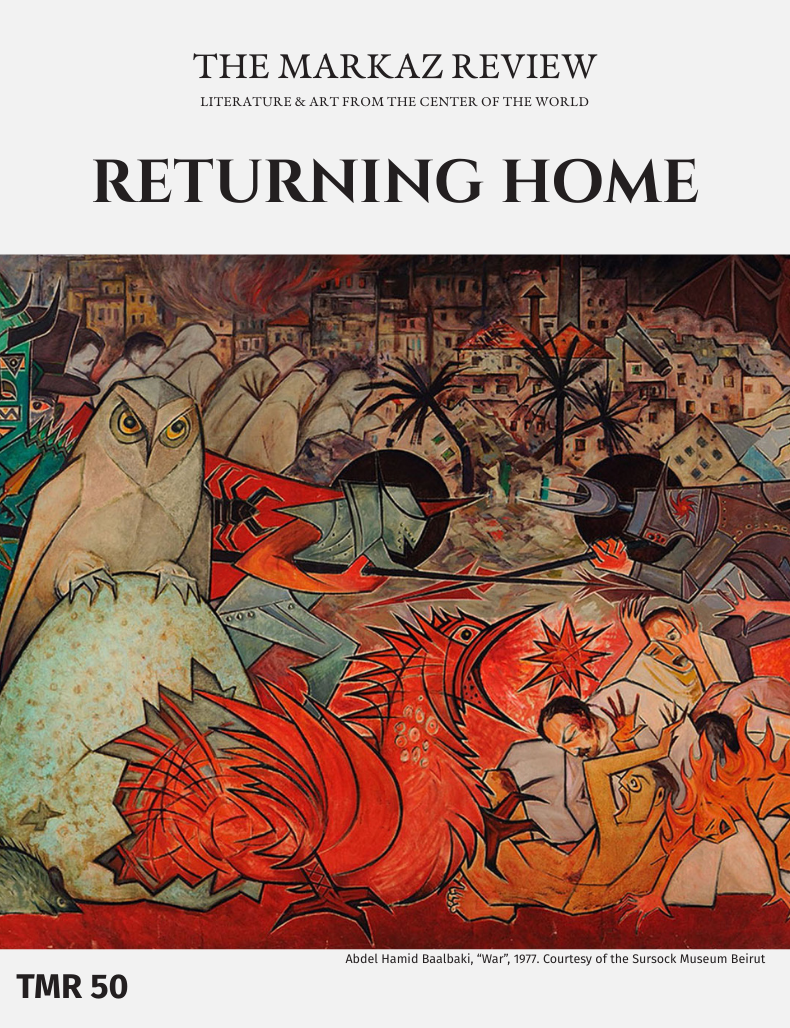
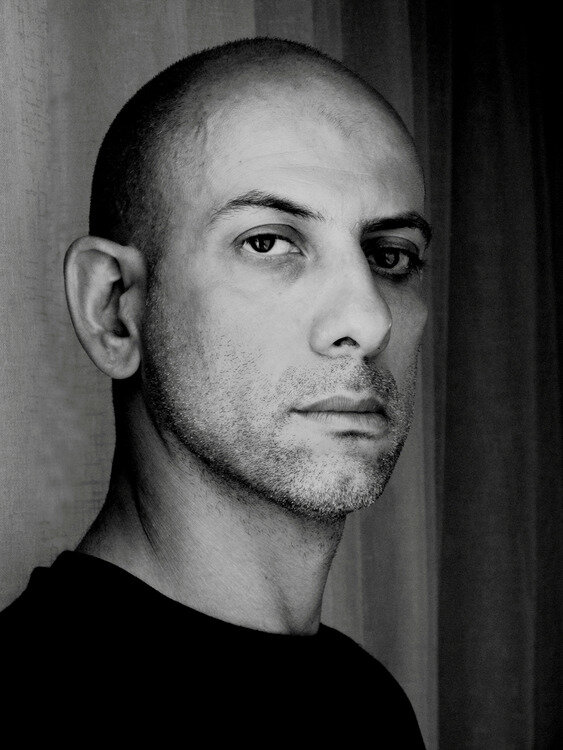
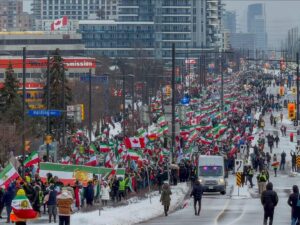
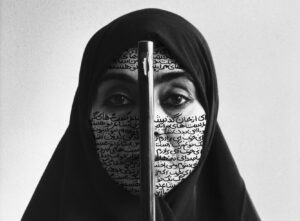


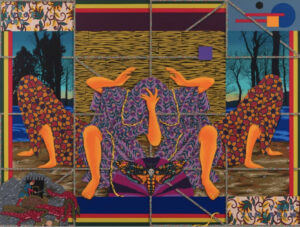

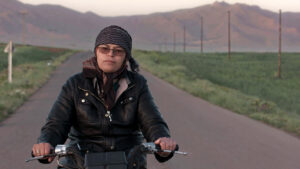


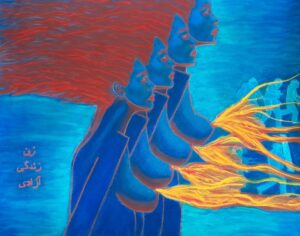






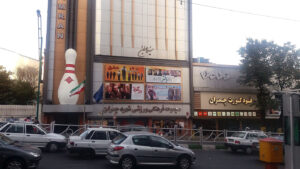
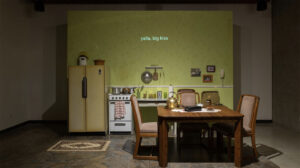



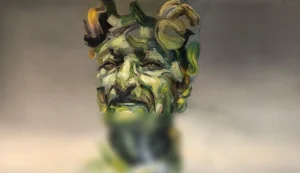

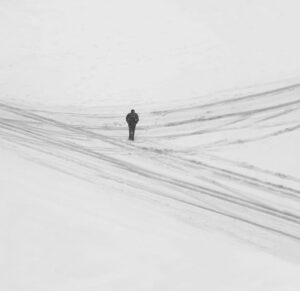

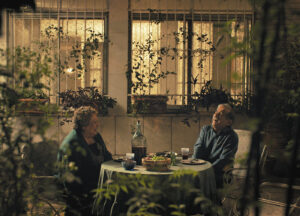
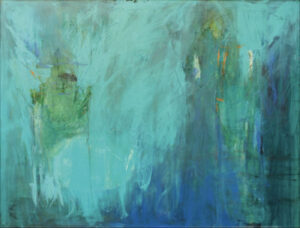

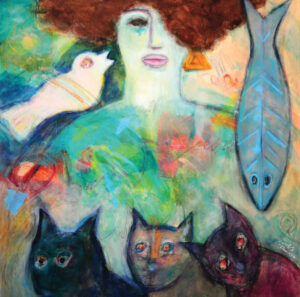
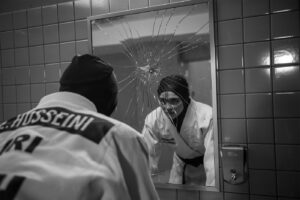



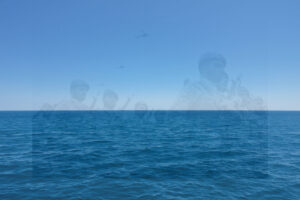


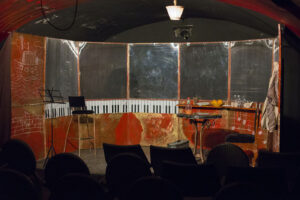




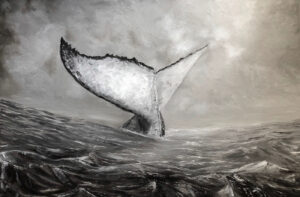



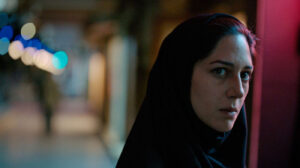


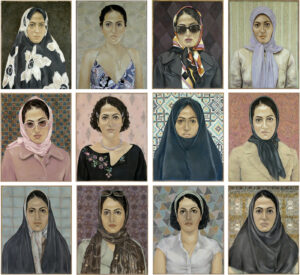



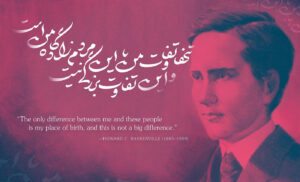

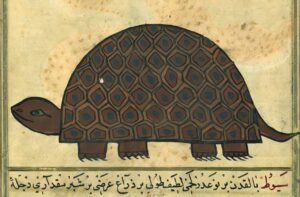

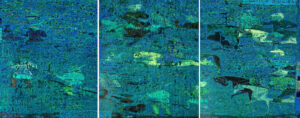
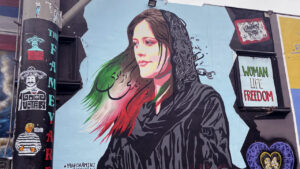
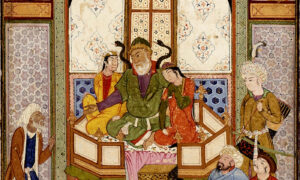



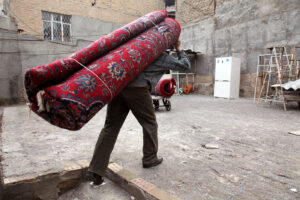




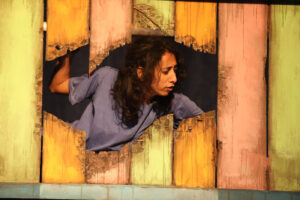


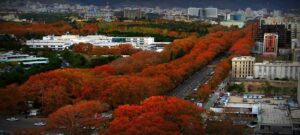


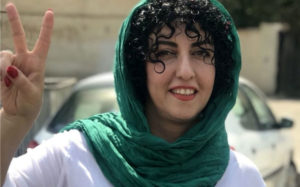

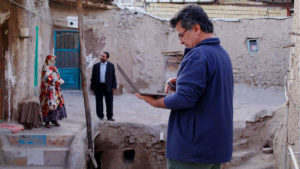


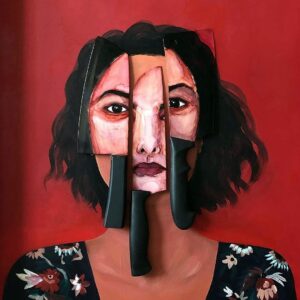

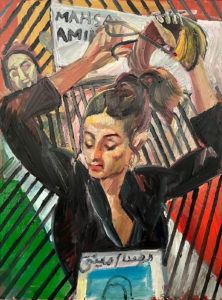
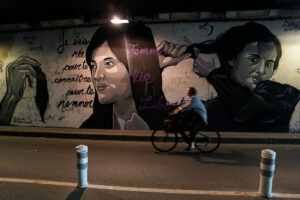
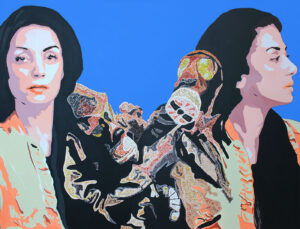


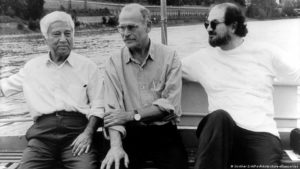


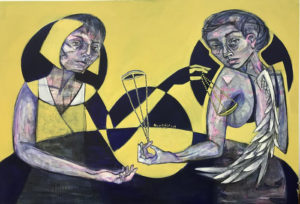




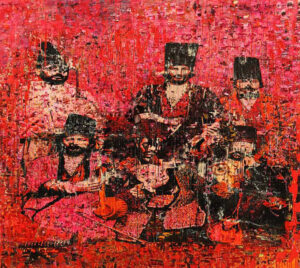





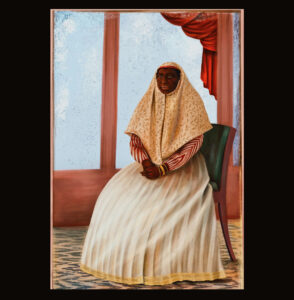





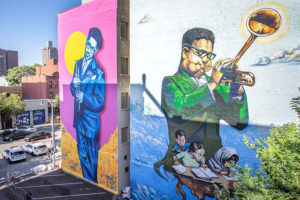


Professor Abdoh! Thank you for this delightful essay. Your words in all their economy reveal the sporting man within the writing man. Two questions nag at me: what was the most important book in those twelve boxes? And do you still play squash today? Aram